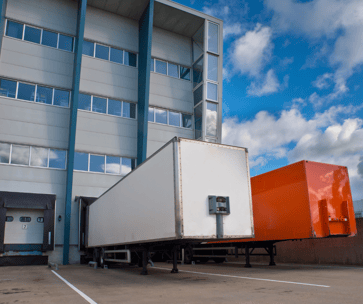How to Find the Right LTL Carrier for Your Shipping Needs
Business Advice | Logistics | Transportation | Best Practices | Freight Management | Shippers | Freight Broker
When it comes to transporting freight, choosing the right LTL (less-than-truckload) carrier can make all the difference in ensuring that your shipment arrives on time, intact, and at a reasonable cost. However, selecting the best trucking company for your specific needs can be daunting with so many available options. This blog post will provide key considerations and best practices to help you select the right provider.
For more information, check out these additional blogs:
- 6 Things to Look for in a Transportation Provider
- Understanding the Primary Types of LTL Carriers
- 3 Qualities Every LTL Carrier Should Have
 Understand Your Freight
Understand Your Freight
The first step is knowing the ins and outs of your specific commodity, including its weight, dimensions, fragility, and any special handling requirements. You should also have a good understanding of your shipment's timeline for delivery, as well as the origin and destination points (e.g., is there a loading dock? Will anyone be available to help load/unload?).
Knowing these details will help you narrow your search to carriers specializing in transporting your type of freight. For example, if you ship fragile items, you may want to look for providers that perform white-glove service. Similarly, if your load is time-sensitive, you might consider transportation providers that offer expedited shipping.
Compare Carrier Rates and Services
Once you have a good understanding of your freight needs, you can begin comparing rates and services from different LTL carriers. When comparing rates, consider all the costs associated with the shipment, including any fuel surcharges, accessorial charges, and other fees. You should also pay attention to the carrier's service level, transit times, and delivery guarantees.
Remember that the cheapest option may not always be the best choice. While cost is important, you should also consider the carrier's reliability, insurance coverage, and customer service reputation. A provider that consistently delivers on time and with minimal damage will ultimately save you time and money in the long run.
Check Carrier Limitations of Liability
One benefit of LTL is that all carriers are fully insured with reliable safety ratings. Whereas full truckload (FTL) shipping means choosing between hundreds of thousands of options, the LTL niche is much more concentrated. The top ten LTL carriers haul 80% of the country's market share.
.png?width=263&height=176&name=Comprehensive%20Insurance%20(Temp-Controlled%20Website%20Page).png) That said, proper insurance coverage is essential in the event your shipment is damaged. It is crucial to ensure the carrier’s limitations of liability cover the replacement value of the product and freight charges of your LTL shipment if it is lost, stolen, or damaged. This determines the maximum amount of money the transportation provider can be held liable for in the event of damage, loss, or delay due to their negligence.
That said, proper insurance coverage is essential in the event your shipment is damaged. It is crucial to ensure the carrier’s limitations of liability cover the replacement value of the product and freight charges of your LTL shipment if it is lost, stolen, or damaged. This determines the maximum amount of money the transportation provider can be held liable for in the event of damage, loss, or delay due to their negligence.
Liability limits vary between carriers and situations and differ from insurance. For higher-value shipments, you should look to source insurance coverage on your load through your logistics partner or directly with the carrier. With Armstrong’s comprehensive all-risk insurance, you’re guaranteed coverage no matter what.
Evaluate Customer Service
A carrier's ability to communicate effectively, provide timely updates, and resolve any issues that may arise can make all the difference in ensuring a successful shipping experience.
When evaluating a provider's level of customer service, consider factors such as their responsiveness to inquiries, the availability of a dedicated account representative, and the quality of their customer service team. You can also look for online reviews and testimonials from other customers to better understand what it's like working with them.
Consider Carrier Capacity and Network
 Look for providers that have a broad network of terminals and distribution centers, as well as a large fleet of trucks and trailers. This can help ensure that your shipments will be picked up and delivered quickly and that the carrier can accommodate any unexpected surges in demand.
Look for providers that have a broad network of terminals and distribution centers, as well as a large fleet of trucks and trailers. This can help ensure that your shipments will be picked up and delivered quickly and that the carrier can accommodate any unexpected surges in demand.
In addition to capacity, consider the carrier's experience in your specific industry. Some may specialize in certain types of freight, such as temperature-controlled or hazardous materials, while others may have more experience in specific geographic regions. Look for carriers with a proven track record of success in your niche; this can help ensure they have the expertise and resources necessary to handle your specific needs.
Delivering Superior Service Since 2006
When it comes to transporting your freight, you want to ensure that it's in good hands. As a top third-party logistics provider, we offer shippers access to a vast network of over 60,000 carefully vetted and monitored carriers. This means that when you partner with us, you don't have to spend time evaluating providers because we've already done the work for you. Request a quote today and experience the benefits of partnering with a logistics provider with the resources, expertise, and commitment you need.



